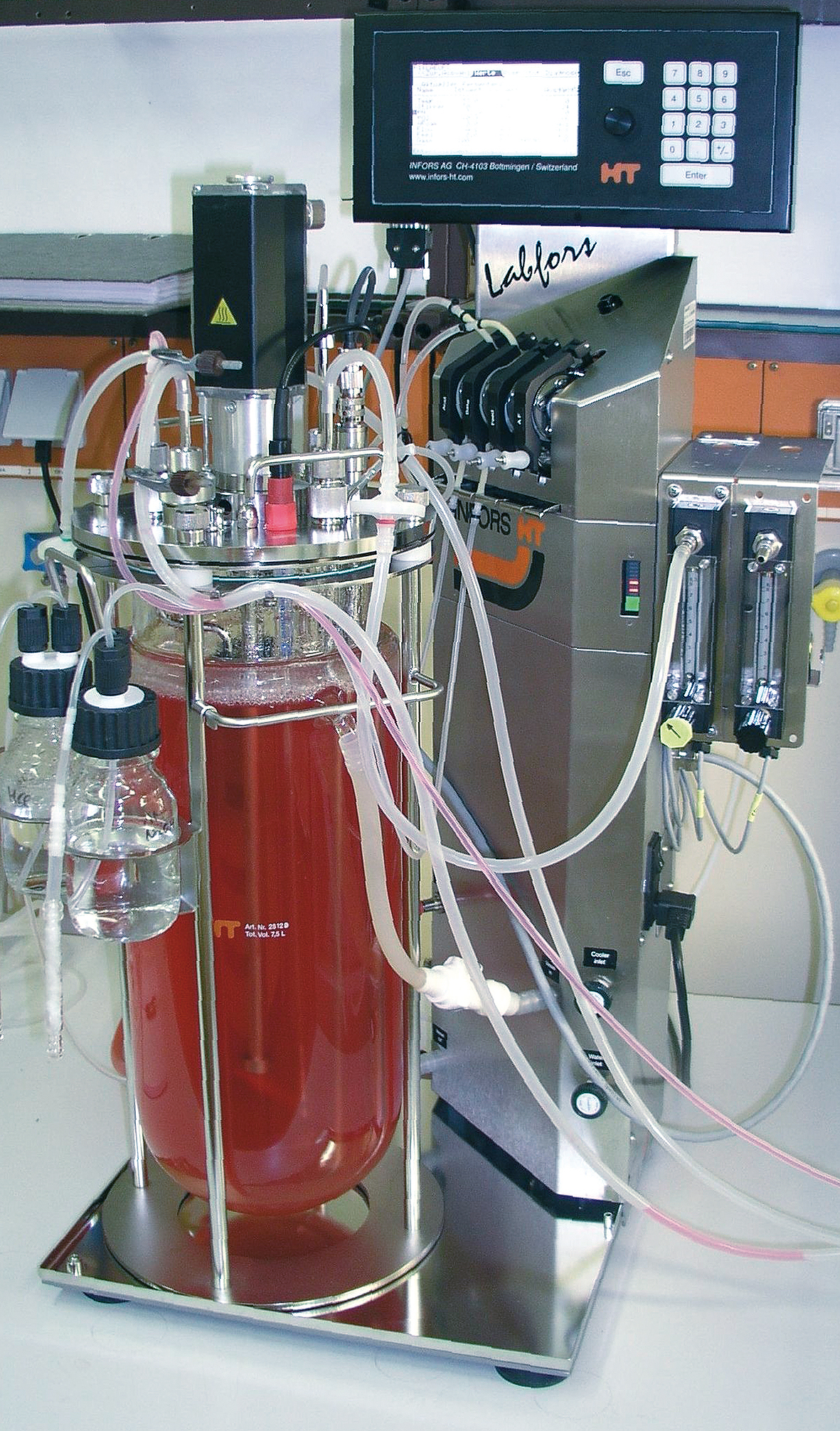First biogeneric therapeutic protein from Fraunhofer Institute introduced to the market
Interferon-beta is used for multiple sclerosis therapy. An interferon-beta protein developed at the Fraunhofer Institute for Interfacial Engineering and Biotechnology IGB, Stuttgart, Germany, in collaboration with CinnaGen company, Tehran, Iran, is now the first therapeutic protein from a Fraunhofer laboratory to be approved as biogeneric / biosimilar medicine.
Multiple sclerosis (MS) is the most common disease of the central nervous system. Estimates put the number of people suffering from multiple sclerosis at about 2.5 million worldwide. The only therapeutic successes achieved so far have been with interferon-beta, a protein produced naturally in the body. It slows down the progression of the illness and reduces the relapse rate. Biotechnological techniques make it possible to engineer this endogenous protein in bacterial or mammalian cells. An interferon-beta-1a, whose biotechnical engineering and production up to the pilot scale was optimized at the Fraunhofer Institute for Interfacial Engineering and Biotechnology IGB in collaboration with CinnaGen Company, has now been approved as biogeneric by the Iranian Food and Drug Administration (IFDA). It is produced and marketed in Iran as CinnoVex by the biotech company CinnaGen.
IGB's project group "Genetic Engineering" under Professor Bernd Otto in Hannover, Germany, successfully cloned the human protein into a suitable expression vector and established the production of the natural protein by a stable transfection in a mammalian cell line. The interferon-beta-1a hereby obtained is glycosylated like the human protein. In vitro it shows a higher biological activity than interferon-beta-1b, which is produced in bacteria and is not glycosylated. In the Fraunhofer IGB Stuttgart laboratories a multi-disciplinary team developed the production of the pharmaceutical protein up to pilot scale. "We have de-veloped the fermentation process as well as the downstream process-ing, resulting in a highly purified protein. We identified the protein by amino acid sequencing and proved its antiviral effects," explains Professor Herwig Brunner, Director of Fraunhofer IGB. The Iranian CinnaGen gave proof of its clinical effectiveness within three years, including appropriate quality control and clinical trials.
Developing a medicine involves a great deal of time and expense. "Fraunhofer supports pharmaceutical and biotechnology enterprises through the development and biotechnological production of generic proteins, as well as the development of new therapeutic proteins," Professor Brunner describes the IGB strategy. A more soluble variant of interferon-beta also engineered at the IGB is for example being clinically investigated by the Vakzine Projekt Management (VPM) GmbH in Braunschweig, Germany. In addition, functional genome and proteome analysis technologies established at IGB have led to a large number of potential target molecules for the therapy of infections by the pathogenic yeast Candida albicans and have thus opened possibilities for new medical drugs. Preclinical tests of promising active substance candidates can be supported by IGB's organoid test systems on the basis of three-dimensional human cell structures, thus helping to avoid animal testing. Further potential therapeutic peptides and proteins have been developed at Fraunhofer IGB, representing a good source for companies interested in filling their product pipeline.
 Fraunhofer Institute for Interfacial Engineering and Biotechnology IGB
Fraunhofer Institute for Interfacial Engineering and Biotechnology IGB